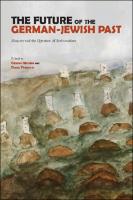The Future of the German-Jewish Past
Memory and the Question of Antisemitism
Contributor(s)
Reuveni, Gideon (editor)
Franklin, Diana (editor)
Collection
Knowledge Unlatched (KU)Number
5528Language
EnglishAbstract
Germany’s acceptance of its direct responsibility for the Holocaust has strengthened its relationship with Israel and has led to a deep commitment to combat antisemitism and rebuild Jewish life in Germany. As we draw close to a time when there will be no more firsthand experience of the horrors of the Holocaust, there is great concern about what will happen when German responsibility turns into history. Will the present taboo against open antisemitism be lifted as collective memory fades? There are alarming signs of the rise of the far right, which includes blatantly antisemitic elements, already visible in public discourse. But it is mainly the radicalization of the otherwise moderate Muslim population of Germany and the entry of almost a million refugees since 2015 from Syria, Iraq, and Afghanistan that appears to make German society less tolerant and somewhat less inhibited about articulating xenophobic attitudes. The evidence is unmistakable—overt antisemitism is dramatically increasing once more. The Future of the German-Jewish Past deals with the formidable challenges created by these developments. It is conceptualized to offer a variety of perspectives and views on the question of the future of the German-Jewish past. The volume addresses topics such as antisemitism, Holocaust memory, historiography, and political issues relating to the future relationship between Jews, Israel, and Germany. While the central focus of this volume is Germany, the implications go beyond the German-Jewish experience and relate to some of the broader challenges facing modern societies today.
Keywords
History; JewishISBN
9781612497037Publisher
Purdue University PressPublisher website
http://www.thepress.purdue.edu/Publication date and place
2020Grantor
Imprint
Purdue University PressClassification
Social and cultural history


 Download
Download